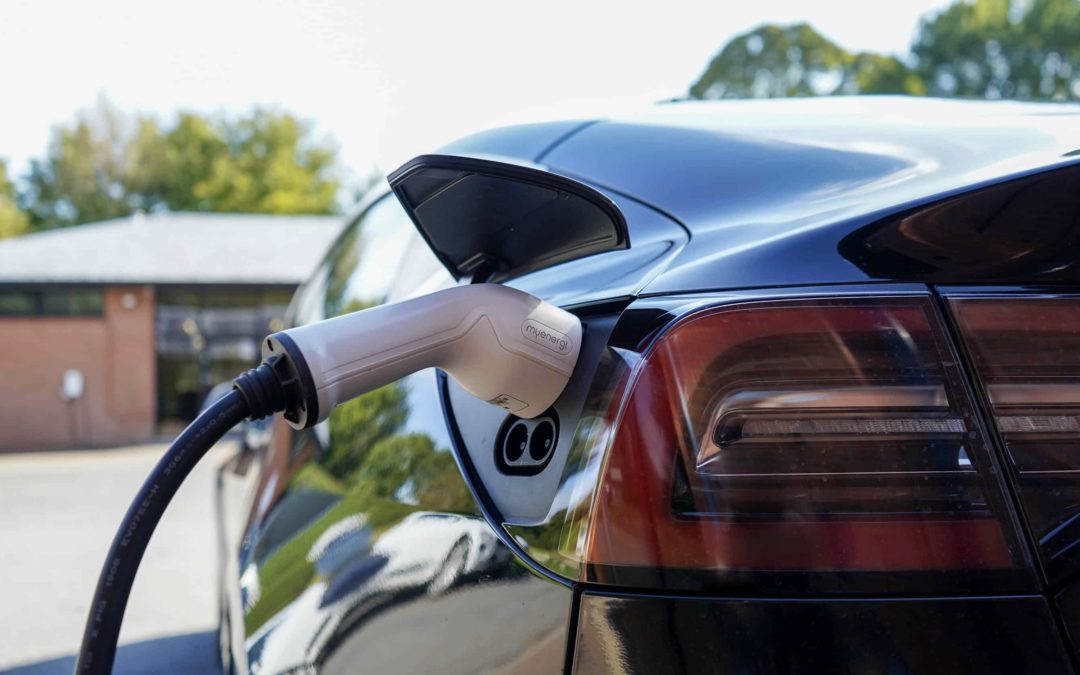Whether as a contribution to climate protection, for image promotion or as innovative step towards the future — more than half of the fleet operators are currently planning to purchase electric or hybrid vehicles, or even to extend the already existing eFleet. However, everybody who wants to efficiently integrate eMobility into their fleet, should set-up a company car regulation, a so-called eCar Policy.
The eCar Policy is the central set of rules for an electric vehicle fleet and is decisive for the structure and use of electric company cars. Just like a conventional car policy, it corresponds to an internal regulation on the purchase and use of company cars — in this case electric ones. The rights and obligations are defined, both for companies and for their company car drivers. For example, cost assumptions, liability limits, charging or scope of use can be determined. The regulations can apply generally and would then not have to be concluded with each individual employee, as is the case with a company car lease agreement.
Some aspects that are important when setting up an eCar Policy:
Purchase
Before the definition of the terms of use, the electric company cars have to be purchased. Thevehicle selection, their equipment as well as subsequent extensions can already be recorded in the eCar Policy. More considerations that are relevant are based on the area of application or the necessary range. The period for which a vehicle is parked also plays an important role: With shorter parking times, it may be necessary to consider higher charging performance of the eCarsand corresponding quick-charging points. Depending on the charging infrastructure of the company environment and different driving profiles, this may possibly also result in different user groups. These groups should be clearly defined in the eCar Policy in order to be able to assign them corresponding vehicles. An exclusive eCar is more suitable for Stop–and-Go traffic within cities, while hybrid vehicles are better suited for employees with field service or especially long ways to work.
Liability & Legal
Just like a combustion car, an electric car is generally a company car requiring a legal accident insurance. Due to the differences in the drive, there are, however, particularities that should be considered and adjusted in the hazard assessment. Despite high safety of the batteries, failures or accidents may lead to electric shocks or short circuits. Especially with electric cars, accidents may be caused by the very quiet driving or abrupt braking or acceleration by the Eco mode. For such contingencies, a liability exclusion of the company vis-à-vis the drivers may be defined or an additional battery insurance may be concluded. For special damage such as operating errors during charging, it may be amended by a so-called all risks cover.
Charging options
As compared to company cars that have to be refueled, there are – for electric fleet vehicles – several charging oiptions: It is generally possible to charge the company car on the go, at work or at home. If the employees use public charging or are only allowed to charge at home or at certain places, this should be defined in the eCar Policy.
Charging company cars at home
Charging electric company cars at home certainly offers numerous advantages. If an employer wants to enable their company car drivers to charge their cars at home, the e-company car regulations should certainly also regulate responsibility for the purchase and financing of the charging station. Options for relieving employees are a tax-free loan for the duration of the employment relationship or the assumption of costs as a monetary benefit. The billing process should also be defined, especially for charging at home. In order to implement billing as simply and transparently as possible, a clear and precise overview of consumption is essential. Intelligent charging software, such as the reev Dashboard, records the charging processes automatically for each user, which means there is no need to read the meter readings manually. A receipt that is automatically generated every month is sent to the employer for settlement. The latter can then simply reimburse the electricity costs, for example together with the monthly expenses. However, it is essential that access is restricted at the home charging station so that only the charging processes of authorized company car drivers are recorded and transmitted for settlement. If other users are also allowed to use the home charging station, e.g. life partners, this aspect should also be defined in the eCar Policy.
If the company car is regularly charged at home, it can be determined who is responsible for the legally obligatory maintenance of the home charging station and to what extent. If you are interested in more information about charging company cars at home, contact our Sales team.
Charging & settlement at the company location
For the charging stations at the company location, different user groups, charging tariffs and time restrictions – for example during working and peak times – can become part of the eCar Policy. For example, special charging rates and times for employee charging (charging of private electric vehicles), for guests or residents.
There are further options for settlement when using hybrid cars: For example, it can be an incentive to cover all electricity costs by the employer, while the employees bear any refueling costs themselves.
Many companies see the future of their fleet in eMobility. In order to use resources efficiently andachieve a fair regulation for the users, it is thus advisable to define corresponding guidelines within the scope of an eCar Policy . They should ideally be adjusted to the individual company.
Are you interested in reev charging solutions for companies?
We are happy to advise you personally on the possibilities. Just get in touch with us, our team will get back to you.
